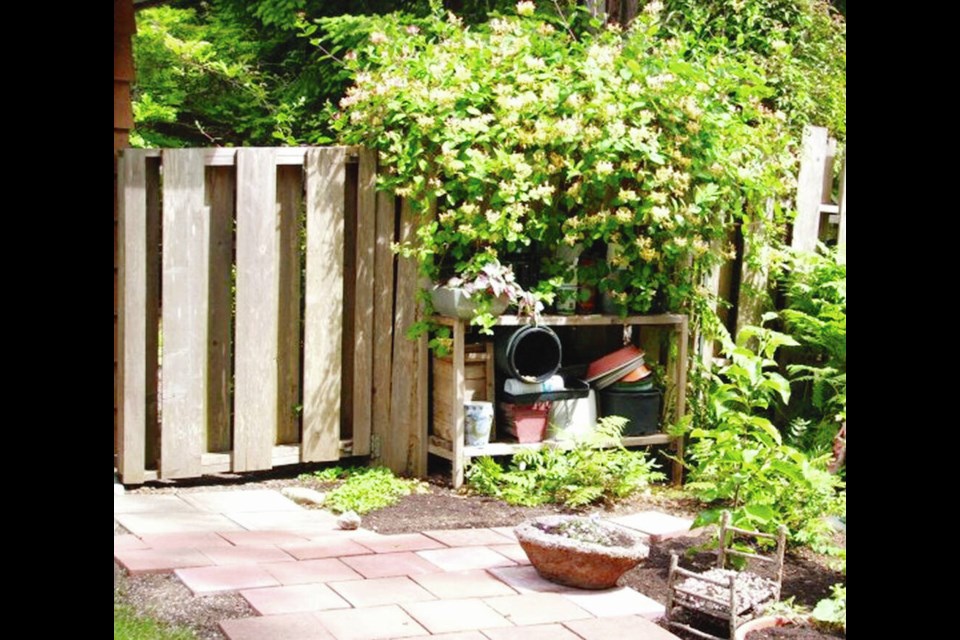Dear Helen: From reading your column over several years, I gather that your garden is long-established and large. I’m wondering at what point you would consider moving on to a smaller, more easily managed gardening space. I am asking because I’m at the point now of wanting to start over on a smaller property. I’d appreciate a little guidance on fencing, and on basic steps to setting up a new garden.
A.E.
The issue you raise is one I do think about often, much as I love my garden. In the current housing market, finding a suitable property that is affordable may be difficult, but one can dream.
The first step, before even looking at potential new garden spaces, is to have a clear idea of your basic needs and desires.
For example, as a single person who prefers to live simply, I’d be happy in two or three rooms as long as there was enough space adjacent to the dwelling for growing my favourite food garden and ornamental plants. Preferences for the size and nature of a property will obviously vary among individuals and families.
Fencing. Some sort of boundary marker to define a property is desirable, in my opinion. It does not have to be a fence, though that is my preference. Once you have a specific garden space to define, a visit to a local fencing business should help you choose a type suitable for the space.
I value neighbourhood friendliness, and chats with people next door. I would not put up a high, solid board fence. Solid walls also impede the free circulation of air that helps to keep plants free of disease.
White picket fencing associated nostalgically with old-fashioned cottage gardens is an attractive option, but this type of fencing is not usually high enough to keep out the deer that are a common problem encountered by gardeners on the Island.
If it suited the space to be fenced, and if the project appeared manageable, I’d erect a green chain link fence to enclose the back garden, which ideally would be shaped in enough of a rectangle to allow the creation of a walled garden, clothed in climbing plants trained against the fence to create walls of foliage, flowers and fruit through the summer.
Setting up. Many plants could be trained against a chain link fence: espaliered fruit trees, climbing roses, honeysuckle, clematis, sweet peas, annual morning glory, snow peas, runner and pole beans, raspberries.
The next step would be to mark out space for a pathway alongside the fence, for convenient care of the trained plants. Then, decide what you would most like to grow in the rest of the enclosed area. Mostly edibles, with some herbs and flowers? Favourite shrubs? A small flowering tree?
One area could be used for perennial edibles — rhubarb, strawberries, asparagus, globe artichoke. Among vegetables, grow the ones you most like to eat. The warmest, sunniest corner could be used for Mediterranean herbs like thyme, rosemary, oregano and lavender.
If space allows, plantings could be sectioned into “rooms” by lines of plants like low-growing blueberry bushes, clipped boxwood, rosemary, lavender, or tall marigold plants, which would serve as divider hedges.
Weekend column. I’ll be taking a break from writing the Saturday column on the upcoming holiday weekend. I’ll be back next Wednesday.
GARDEN EVENT
Plant sale. The Compost Education Centre (CEC), 1216 North Park St. in Victoria, is hosting its annual August Plant Sale and celebrating its 30th anniversary on Saturday, Aug. 6, from 10 a.m. to 1 p.m. The event will feature local farmers offering a wide variety of organically grown annual overwintering vegetables and perennials to keep you eating through the winter. And to celebrate the centre’s 30th birthday as an organization there will be live music, cake, artisan vendors, an e-bike raffle, an unusual vegetable contest, and a Parent-Child ‘Composting 101’ workshop.
The sale will take place for the first time in Haegert Park, one block from the centre. Bring a blanket or a picnic so you can enjoy the music under the giant Sequoia tree. Entry by donation or free for CEC members. Dogs are welcome.
Fundraising from this event will support CEC educational programming initiatives for children, youth, and adults in the community. To learn more about the centre’s work, visit their website: compost.bc.ca.



